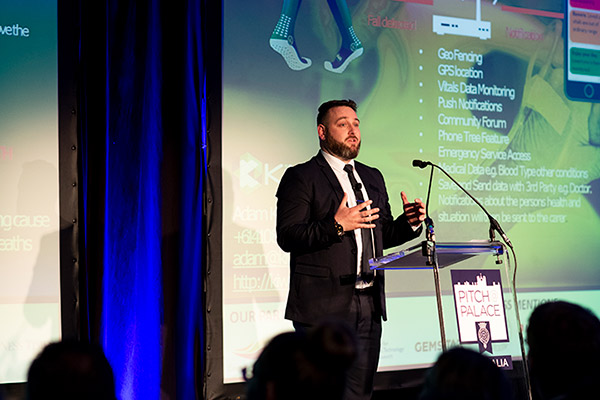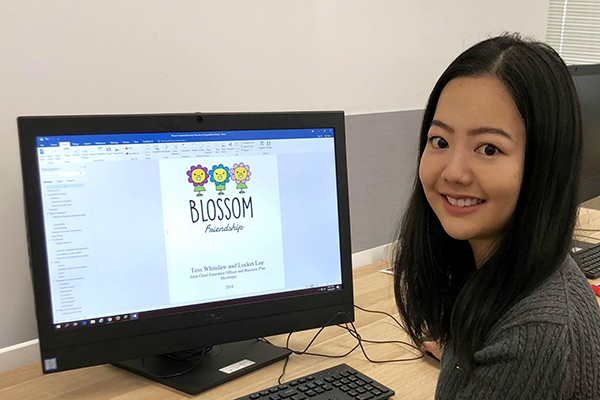
The word “finance” might make you think of polished suits, briefcases and skyscrapers at first – but practically every organisation relies on finance in some way.
Forging a career in finance could see you working in any industry anywhere in the world. You might be delivering long-range profit forecasts for a popular brand, creating budgets and policies for a not-for-profit organisation, monitoring global commodity prices for stock exchange clients or working directly with people to help them make the most of their money.
What careers can you pursue if you study finance?
You could work in stockbroking, insurance, and banking – but also in any public, private or not-for profit organisation. Your career options could include roles such as:
- Credit manager – helping companies manage their credit and collect payments
- Financial analyst or manager – helping organisations make decisions based on data you interpret
- Investment strategist – advising companies where to invest and why
- Chief Financial Officer (CFO) – overseeing an organisation’s financial activity and managing their finance team.
- Finance Broker – helping people make decisions about their money and how they might spend, invest or borrow it
You could work for consultancy or professional services firms, universities or institutions, government agencies, banks, brokerage firms, start-ups and more.
What can you do as part of a role in finance?
Working in finance, you might help corporate or individual clients plan for their short-term and long-term financial goals. That could include buying property, recommending investments, preparing for major change such as mergers or retirement and more. On any typical day, you might:
- meet with clients,
- perform market research and analysis,
- recruit new clients and assess their needs and goals,
- recommend and execute strategies,
- monitor clients’ accounts, or
- identify new opportunities
What skills do you need in finance?
While having a head for numbers and the skills to analyse, predict and plan is very important, communication skills will also help you succeed in the world of finance. Key skills you’ll need include:
- critical and analytical thinking skills to track and manage data and create strategies for your clients,
- communication skills to be a confident communicator and presenter when working with clients, attending meetings and recommending strategies, and
- sales skills to convince your clients that you have their best interests at heart and are working hard to reach their financial goals.
Our Bachelor of Business in Finance is the perfect place to start building your skills in finance:
“Murdoch offers an interesting combination of units that has enabled me to understand the world of banking and finance from multiple perspectives. “ Kanza Hasan, current Bachelor of Business student
How to prepare for a career in finance while you’re at uni
You can start preparing for your career in finance long before you graduate. While you’re studying, you might like to:
- Take on an internship through our Work Integrated Learning program where you work with real organisations on real projects as part of your studies.
- Consider adding another major like accounting to your studies to increase your employability.
- Go along to careers fairs and industry events for students hosted by professional associations and the Murdoch Careers and Employability.
- Join a student society or professional association such as the Financial Services Institute of Australasia (FINSIA) and get involved in their Young Finance Professionals (YFP) chapter network.
- Once you’re a Murdoch student make use of the Murdoch Careers Portal, CareerConnect to explore student and graduate jobs, book into job search workshops and industry events to find out where you can take your finance degree.
- Get involved in professional mentoring programs such as the Murdoch Student Emerging Leaders (MSEL) program, Murdoch Industry Mentoring (MIM) program or FINSIA’s mentoring programs.
- Take on paid work opportunities to get experience during your studies, or during summer or winter study breaks. Add to your finance CV with volunteer work, such as helping a not-for-profit committee that might need a treasurer or budgeting role.
- Consider a study abroad experience or an exchange to one of our partner universities. If you are an international student already studying at Murdoch, be sure to highlight this when you are applying for jobs, as it shows you have global experience and are comfortable working in new environments.
International student Ayguel found the teaching style at Murdoch allowed her to push her boundaries with her business degree, making her more adaptable in the real world of finance.
“Murdoch taught me in different ways. For example, I did a lot of group work with other students and my teachers allowed us to be creative in our learning experiences.”
The future of finance
You can enjoy a career in finance in any industry. As the world changes, new innovations, services and technology will create even more opportunities in this field.
If you choose a career in finance, you’ll join a growing industry, with very strong future growth predicted for finance brokers. (Source: Job Outlook 2019)




















